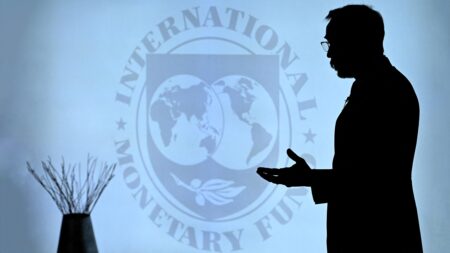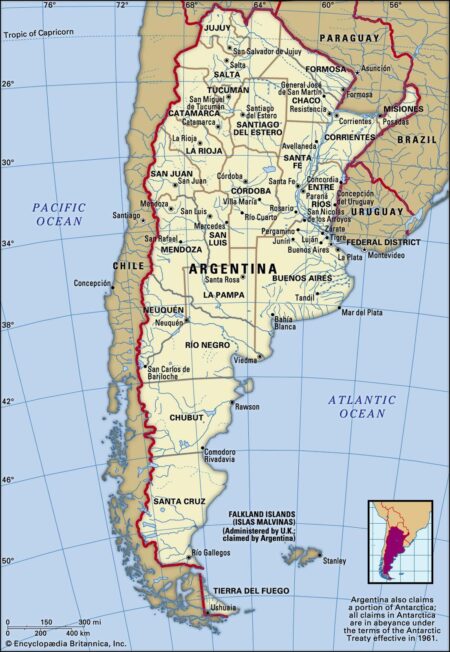The IMF and World Bank have greenlit exciting new bailout packages for Argentina, designed to bolster its economy in the face of persistent inflation challenges. These vital measures are set to offer essential support as the nation charts a course through financial uncertainty.
Browsing: economic recovery
Argentina’s recent IMF deal marks a critical financial maneuver aimed at stabilizing its economy. Negotiations involved stringent fiscal reforms and commitments to reduce inflation, showcasing the government’s resolve to navigate ongoing economic challenges.
A recent Reuters poll indicates that Canada’s growing recession risk could prompt the Bank of Canada to implement at least two additional interest rate cuts this year. Economic concerns are mounting as policymakers seek to stabilize the slowing economy.
In “Opinion | Argentina Needs the Dollar More Than Ever,” the Wall Street Journal explores the nation’s escalating economic crisis, highlighting the urgent need for dollarization. As inflation spirals, many Argentines seek stability through the U.S. currency.
The UK jobs market has witnessed its most significant surge in job seekers since 2020, signaling renewed confidence amid economic recovery. Analysts attribute this rise to easing pandemic restrictions and increased hiring across various sectors.
In a significant move for his administration, President Javier Milei announced Argentina’s new deal with the IMF, marking a pivotal step towards economic stabilization. The agreement coincides with the removal of most capital controls, signaling a shift towards greater financial freedom.
Italy’s Prime Minister Giorgia Meloni has vowed to aid businesses affected by tariffs imposed during the Trump administration. She emphasized the need for solidarity among European nations to counter the financial strain and foster economic resilience.
Beijing’s long-anticipated decree is poised to bolster China’s private sector, offering critical support for economic recovery. Analysts suggest that this policy shift may restore investor confidence and stimulate growth in an increasingly competitive landscape.
Germany, facing an economic downturn, is set to relax its strict debt brake rules, potentially allowing for increased government spending. This shift aims to stimulate growth and address pressing social and infrastructure needs amidst rising geopolitical tensions.
China’s new plan to boost consumer spending focuses on increasing household incomes, enhancing social security, and promoting digital payment systems. This multifaceted approach aims to stimulate domestic demand and support economic growth amid global uncertainties.
European stocks surged and the euro rallied following Germany’s landmark debt agreement, signaling renewed investor confidence. The deal is expected to bolster economic stability across the Eurozone, prompting optimism among markets and analysts alike.
As China’s annual Congress concludes, leaders face lingering uncertainties about revitalizing the economy amid slowing growth. Analysts urge a focus on innovation and structural reforms to address pressing challenges and stimulate sustainable development.
Germany’s recent shift in fiscal policy marks a significant turnaround, as increased spending aims to bolster its economy and strengthen its role within the European Union. This move positions Germany back at the forefront of European decision-making.
Amidst economic uncertainties, Germany’s Finance Minister Christian Merz has initiated a fiscal awakening aimed at revitalizing the nation’s economy. His strategic policies may steer Germany back on track, fostering growth and stability in the Eurozone.
China aims for a GDP growth target of “around 5%” in 2025, signaling a strategic pivot amid rising trade concerns. The government has outlined a suite of stimulus measures to bolster economic stability and enhance domestic demand.
Spain’s economy has transformed from crisis to strength, boasting robust growth and low unemployment. Strategic reforms, strong exports, and a burgeoning tech sector have positioned it as a model for European recovery, drawing admiration and investment.
Argentina’s economic analysts are expressing renewed optimism regarding inflation and growth projections for 2025. Recent assessments indicate a potential stabilization in the economy, suggesting improving conditions following years of volatility.
Italy has pledged $13 million to support Ukraine in restoring its energy infrastructure, following extensive damage from ongoing conflicts. This financial aid underscores Italy’s commitment to Ukraine’s recovery and energy resilience amidst the crisis.
Australia’s flagship airline, Qantas, has declared its first dividend in over five years following a significant rise in profits. The decision marks a positive shift for the airline as it continues to recover from the impacts of the pandemic.
India’s GDP growth is projected to have rebounded in the October-December quarter, fueled by increased government spending, according to a Reuters poll. Analysts expect this fiscal boost to enhance economic resilience amid global challenges.



















